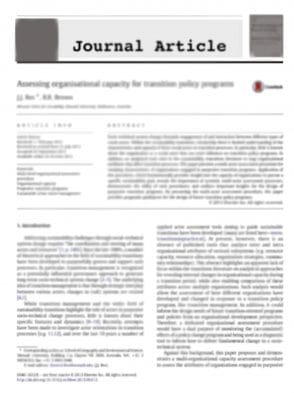Protection of stream ecosystems from urban stormwater runoff; the multiple benefits of an ecohydrological approach
Abstract
There is now widespread recognition of the degrading influence of urban stormwater runoff on stream ecosystems and of the need to mitigate these impacts using stormwater control measures. Unfortunately, however, understanding of the flow regime requirements to protect urban stream ecosystems remains poor, with a focus typically on only limited aspects of the flow regime. We review recent literature discussing ecohydrological approaches to managing urban stormwater and, building on the natural flow paradigm, identify ecologically relevant flow metrics that can be used to design stormwater control measures to restore more natural magnitude, duration, timing, frequency and variability of both high and low flows. Such an approach requires a consideration of the appropriate flow and water quality required by the receiving water, and the application of techniques at or near source to meet appropriate flow regime and water quality targets. The ecohydrological approach provides multiple benefits beyond the health of urban streams, including flood mitigation, water supply augmentation, human thermal comfort, and social amenity. There are, however, uncertainties that need to be addressed. Foremost is the need to define ecologically and geomorphically appropriate flow regimes for channels which have already been modified by existing land use. Given the excess of water generated by impervious surfaces, there is also an urgent need to test the feasibility of the natural flow paradigm in urban streams, for example using catchment-scale trials.
